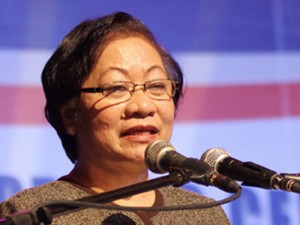DOLE readies upgraded courses for seafarers
The Department of Labor and Employment (DOLE) is in the final stages of putting together the 11 new maritime courses for Filipino seafarers in line with the revised standards of the International Maritime Organization (IMO) that were adopted two years ago.
In a statement, Labor Secretary Rosalinda Baldoz said Monday that seven of the 11 new courses, which seek to update the current Standards of Training, Certification and Watchkeeping (STCW) for seafarers through amendments adopted during a conference in Manila in 2010, would become available to maritime trainees this year.
New courses
The new courses include Able Deck, Able Engine, Advanced Training for Oil Tanker Cargo Operations, Basic Training for Oil and Chemical Tanker Cargo Operations, and Electro-Technical Officer.
It includes modules like the Security Awareness Training and Security Training for Seafarers with Designated Security Duties in response to the increasing threat of pirates in international waters.
Article continues after this advertisementBaldoz said the courses would be submitted to the Maritime Training Council (MTC) for approval and pilot testing during the first quarter.
Article continues after this advertisementLabor Undersecretary Danilo Cruz told reporters that the four remaining courses would be available by March.
He said the DOLE and the MTC were rushing the development of the 11 courses this year to provide local seamen with additional training before the Manila Amendments become fully effective in 2017.
5-year transition period
“Our sailors must be able to take these new courses by 2017, because if they fail to do so, they will be no longer allowed to work abroad,” Cruz told reporters.
The revised STCW from the IMO took effect this year, but it provided a five-year transitional period, which will end in 2017, to allow its member-countries to comply.
“We are likewise updating and revising our rules and instruments to strengthen our legal and administrative structures to respond to the provisions on education, training, certification, medical standard, and other requirements of the Manila Amendments,” added Baldoz.
